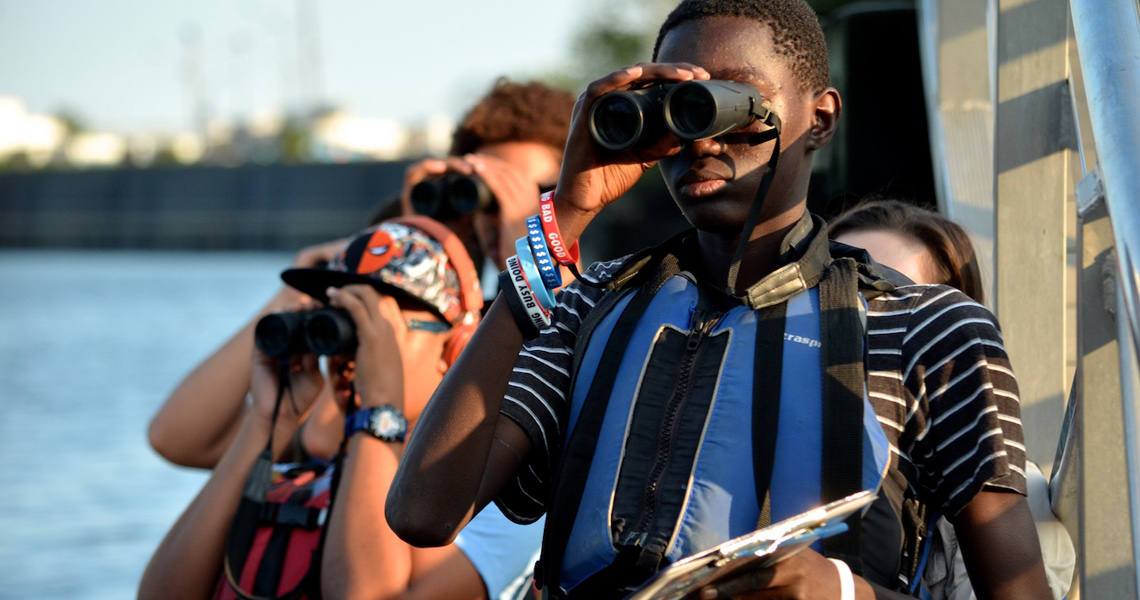youth development
environmental science

Using scientific instruments, following detailed protocols, and working alongside environmental professionals, students and apprentices collect water quality data, monitor birds and fish, reintroduce native plant and animal species, and perform restoration work that is helping to bring the Bronx River back to life after years of neglect.
featured student and apprentice projects
bacteria monitoring
wetland management
Rocking the Boat youth shoulder responsibility for maintaining three different wetlands in the estuary section of the Bronx River. In one instance, in work modelled after a successful project in Newtown Creek in Brooklyn, participants designed, built, and are monitoring planter boxes that resemble tiny tidal wetlands of substrate and native grasses. The boxes have been hung from the concrete bulkheads and built up shorelines of the Bronx River, and are naturally cleaning the water where no habitat can otherwise grow. Seasonally at the Waterwash ABC site, teenage apprentices lead groups of adult volunteers in clearing out relentless invasive species so that native grasses and other vegetation (planted years ago by past classes of apprentices) can continue to grow and serve their critical water filtering function. The third site where apprentices take on regular monitoring and maintenance is the Soundview salt marsh—restored in 2014 by the City and State of New York, Army Corps of Engineers, and neighborhood groups. Their work is ensuring regained biological diversity, ecological productivity, and the capacity of natural processes to enhance environmental quality.
microplastics
Microplastics are particularized and degraded bits of plastic material increasingly found in waterbodies of all kinds. While indications are that a significant level of microplastic is present in the Bronx River, no formal study has ever been conducted; Rocking the Boat has begun a pilot project to do it first. Apprentices have been testing the water specifically for microplastics, establishing and monitoring a baseline. Their data, plus an analysis of the types and sources of the plastic debris, will inform efforts to raise awareness in the community around plastic use and disposal and promote alternative choices that are clearly needed.
Rocking the Boat is always teaching me something new. This experience has made me feel capable, and given me a sense of responsibility to my work and to myself.




